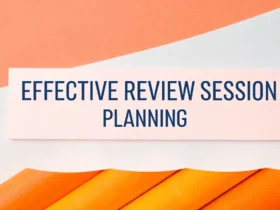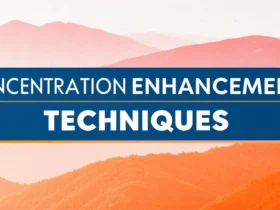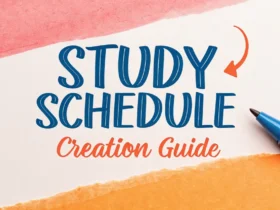Are you staring at a blank page, struggling to translate your thoughts into words that impress your professors? You’re not alone. Many college students face the challenge of mastering academic writing. But fear not! Polishing your academic writing skills doesn’t have to feel like scaling Mount Everest. It’s about understanding the core elements and practicing consistently.
This article will equip you with the knowledge and techniques you need to produce academic papers that not only meet requirements but also earn top marks. We will break down the essential skills, and provide actionable tips that you can implement today. By the end of this read, you’ll be well on your way to becoming a confident and effective academic writer.
Mastering Academic Writing: Skills That Get Results
Academic writing might feel like a different language, but it’s a skill you can definitely learn. It’s not just about throwing fancy words together; it’s about clear thinking, solid research, and presenting your ideas in a structured way. Let’s dive into the key skills that will help you excel.
Understanding Your Assignment
Before you even think about writing, take a good, hard look at the assignment guidelines. This seems simple, but many students lose marks because they didn’t fully grasp what was asked.
- What’s the question? Identify the central question or prompt you need to address. Highlight keywords and phrases that indicate the scope and focus of the assignment.
- What’s the task? Are you supposed to analyze, compare, contrast, evaluate, or argue? Make sure you understand the required action.
- What are the requirements? Pay attention to length, formatting, citation style, and any specific resources you need to use.
Ignoring these details is like starting a road trip without checking the map. You might end up somewhere, but it probably won’t be where you wanted to go.
Research: Finding Solid Ground
Academic writing is built on evidence. You can’t just make stuff up! Thorough research is key to supporting your claims and demonstrating your understanding of the topic.
- Start with credible sources: Peer-reviewed journals, academic books, and reputable websites (like those of universities or government organizations) are your best friends.
- Use your library resources: Your college library provides access to databases and resources you won’t find with a simple Google search. Librarians are also experts at helping you find what you need.
- Take detailed notes: As you research, keep careful notes about the sources you use, key arguments, and supporting evidence. This will save you time later when you’re writing your paper.
- Evaluate your sources: Not all sources are created equal. Consider the author’s expertise, the publication date, and any potential biases.
Remember, good research isn’t just about finding information; it’s about critically evaluating it and using it to build your own argument.
Developing a Strong Thesis Statement
Your thesis statement is the heart of your academic paper. It’s a concise statement of your main argument or point of view. A strong thesis statement will guide your writing and help you stay focused.
- Make it arguable: A thesis statement shouldn’t be a simple statement of fact. It should be something that people could reasonably disagree with.
- Make it specific: Avoid vague or general statements. A strong thesis statement clearly indicates the scope and focus of your paper.
- Make it manageable: Don’t try to tackle too much in a single paper. A focused thesis statement will allow you to develop your argument in sufficient detail.
For example, instead of saying “Social media has an impact on society,” you could say “While social media offers opportunities for connection and information sharing, its negative impact on mental health, particularly among young adults, outweighs these benefits.”
Structuring Your Argument Logically
Academic writing isn’t just about presenting information; it’s about making an argument. You need to present your ideas in a logical and persuasive way.
- Create an outline: Before you start writing, develop a detailed outline that maps out the structure of your paper. This will help you organize your thoughts and ensure that your argument flows logically.
- Use clear topic sentences: Each paragraph should begin with a clear topic sentence that introduces the main point of the paragraph. This will help your readers follow your argument.
- Provide supporting evidence: Back up your claims with evidence from your research. Use quotes, statistics, and examples to support your points.
- Acknowledge counterarguments: Show that you’ve considered other points of view. Acknowledge potential counterarguments and explain why your argument is stronger.
- Transition smoothly: Use transition words and phrases to connect your ideas and guide your readers through your argument.
A well-structured argument is like a building with a solid foundation. Each part supports the whole, and the overall structure is strong and stable.
Writing Clearly and Concisely
Academic writing doesn’t have to be complicated. In fact, the best academic writing is clear, concise, and easy to understand.
- Use precise language: Avoid vague or ambiguous words. Choose words that accurately convey your meaning.
- Avoid jargon: Unless you’re writing for a highly specialized audience, avoid using technical terms or jargon that your readers may not understand. If you must use jargon, define it clearly.
- Write in the active voice: The active voice makes your writing more direct and engaging. Instead of saying “The experiment was conducted by the researchers,” say “The researchers conducted the experiment.”
- Vary your sentence structure: Use a mix of short and long sentences to keep your writing interesting.
- Eliminate unnecessary words: Cut out any words or phrases that don’t add meaning to your writing.
- Show, don’t tell: Instead of simply stating your point, provide evidence and examples that illustrate your meaning.
Clear and concise writing is a sign of clear thinking. It shows that you understand your topic well and can communicate your ideas effectively.
Mastering Grammar and Mechanics
Grammar and mechanics might seem like minor details, but they can have a big impact on the credibility of your writing. Errors in grammar, spelling, and punctuation can distract your readers and make it harder for them to understand your argument.
- Proofread carefully: Always proofread your work carefully before submitting it. Pay attention to grammar, spelling, punctuation, and formatting.
- Use a grammar checker: Grammar checkers like Grammarly can help you identify and correct errors in your writing.
- Ask someone to proofread your work: A fresh pair of eyes can often catch errors that you might have missed.
- Learn the rules of grammar and punctuation: Take the time to learn the basic rules of grammar and punctuation. This will help you avoid common errors.
Think of grammar and mechanics as the polish on a fine piece of furniture. They might not be the most important part, but they can make a big difference in the overall impression.
Citing Your Sources Correctly
In academic writing, giving credit where it’s due is key. You need to cite your sources correctly to avoid plagiarism and show that you’ve done your research.
- Choose a citation style: Your professor will usually specify which citation style you should use (e.g., MLA, APA, Chicago). Make sure you understand the requirements of that style.
- Cite all sources: Cite all sources that you use in your paper, including quotes, paraphrases, and summaries.
- Use in-text citations: Use in-text citations to indicate the source of your information within the body of your paper.
- Create a bibliography or works cited page: Include a complete list of your sources at the end of your paper.
- Be consistent: Follow the citation style consistently throughout your paper.
Correctly citing your sources is a sign of academic integrity. It shows that you’re honest and responsible in your use of information.
Editing and Revising Your Work
Writing is a process, not a one-time event. After you’ve written your first draft, take the time to edit and revise your work.
- Take a break: Before you start editing, take a break from your writing. This will help you approach your work with a fresh perspective.
- Read your paper aloud: Reading your paper aloud can help you identify awkward phrasing and unclear sentences.
- Focus on the big picture: In the first round of editing, focus on the overall structure and argument of your paper. Make sure your thesis statement is clear, your argument is logical, and your evidence is strong.
- Focus on the details: In the second round of editing, focus on the details of your writing, such as grammar, spelling, and punctuation.
- Get feedback from others: Ask a friend, classmate, or professor to read your paper and provide feedback.
Editing and revising is an important part of the writing process. It’s your chance to refine your ideas and make your writing as clear and effective as possible.
Advanced Techniques for Academic Writing
Once you’ve mastered the basics of academic writing, you can start to explore some more advanced techniques. These techniques will help you take your writing to the next level.
Developing a Unique Voice
While academic writing is often associated with objectivity and formality, it’s also important to develop your own unique voice. Your voice is what makes your writing distinctive and engaging.
- Don’t be afraid to express your opinion: While you should always support your claims with evidence, don’t be afraid to express your own opinion or point of view.
- Use humor and wit: When appropriate, use humor and wit to make your writing more engaging.
- Use vivid language: Use vivid language and imagery to bring your writing to life.
- Be yourself: The best way to develop your voice is to be yourself. Write in a way that feels natural and authentic to you.
Developing a unique voice takes time and practice. But it’s worth the effort. Your voice is what will make your writing stand out from the crowd.
Understanding E-E-A-T in Academic Context
While E-E-A-T (Experience, Expertise, Authoritativeness, Trustworthiness) is a concept primarily used in SEO, it also has relevance to academic writing. By understanding the principles of E-E-A-T, you can enhance the quality and credibility of your work.
-
Experience: In an academic context, experience can refer to your practical knowledge of a subject, gained through research, experimentation, or fieldwork.
Example: If you are writing a paper on the effectiveness of a particular teaching method, including insights from your own experience as a student or teacher can add value. -
Expertise: Demonstrate expertise through thorough research, critical analysis, and a deep understanding of the subject matter. Cite reputable sources and engage with existing scholarship.
Example: If you are writing a literature review, showcase your expertise by analyzing key themes, identifying gaps in the literature, and synthesizing different perspectives. -
Authoritativeness: Establish authoritativeness by citing credible sources, engaging with established scholars in your field, and presenting your arguments in a clear and well-supported manner.
Example: Reference highly cited works in your field and show that you are familiar with the key debates and controversies. -
Trustworthiness: Ensure trustworthiness by accurately citing your sources, avoiding plagiarism, and presenting your arguments in a fair and unbiased manner. Be transparent about your methodology and any potential limitations of your research.
Example: Clearly indicate the limitations of your study, acknowledge any potential biases, and provide a balanced perspective on the topic.
By focusing on these elements, you can create academic writing that is not only informative and persuasive but also highly credible and trustworthy.
Optimizing for Readability and Engagement
Academic writing can sometimes be dense and difficult to read. However, it’s important to make your writing as readable and engaging as possible. This will help your readers understand your argument and appreciate your insights.
- Use headings and subheadings: Break up your text into logical sections with clear headings and subheadings. This will help your readers scan your paper and find the information they’re looking for.
- Use lists and bullet points: When appropriate, use lists and bullet points to present information in a concise and easy-to-read format.
- Use visuals: Include images, charts, and graphs to illustrate your points and make your writing more visually appealing.
- Write in a conversational style: While you should maintain a formal tone, try to write in a conversational style that is engaging and easy to understand.
Optimizing for readability and engagement is a sign of respect for your readers. It shows that you care about their experience and want to make your writing as accessible as possible.
Using Transition Words Effectively
Transition words are like the road signs of your academic writing. They guide your reader from one thought to the next, making the connections between your ideas clear and logical. Used well, they create a smooth, easy-to-follow flow that keeps your reader engaged.
Here are a few categories of transition words and how they can be used:
Adding Information
- Examples: “In addition,” “Furthermore,” “Moreover,” “Also”
- Usage: These words signal that you’re building upon a previous point, offering more evidence, or expanding on a concept.
“The data suggests a correlation between exercise and improved mood. Furthermore, studies show a link between physical activity and reduced anxiety levels.”
Showing Cause and Effect
- Examples: “Therefore,” “Thus,” “Consequently,” “As a result,” “Because”
- Usage: These highlight the relationship between an action or event and its outcome.
“The experiment yielded unexpected results. Therefore, the initial hypothesis needs to be re-evaluated.”
Contrasting Ideas
- Examples: “However,” “On the other hand,” “In contrast,” “Nevertheless,” “Despite”
- Usage: These words introduce opposing viewpoints, limitations, or qualifications to your argument.
“While the initial findings were promising, further research is needed to confirm these results. However, the study does provide a foundation for future investigations.”
Illustrating or Giving Examples
- Examples: “For example,” “For instance,” “To illustrate,” “Specifically”
- Usage: Use these to provide concrete examples that support your claims and make your ideas more understandable.
“Effective leaders often exhibit strong communication skills. For example, they are adept at articulating a clear vision and motivating their teams.”
Showing Sequence or Time
- Examples: “First,” “Second,” “Third,” “Next,” “Finally,” “Subsequently”
- Usage: These are useful when describing a process, outlining steps, or presenting a series of arguments.
“First, the data was collected. Second, it was analyzed. Finally, the results were interpreted.”
Summarizing or Concluding
- Examples: “In conclusion,” “To summarize,” “In brief,” “Overall”
-
Usage: These words signal that you’re wrapping up your discussion and restating your main points.
“In conclusion, while the benefits of technology in education are numerous, it is essential to address the potential challenges to ensure equitable and effective implementation.” -
Don’t overuse them: Sprinkling transition words liberally throughout your text can make your writing sound stiff or formulaic.
- Vary your choices: Using the same few transition words repeatedly can become monotonous. Try to expand your vocabulary and use a variety of words to signal different relationships between ideas.
- Make sure they make sense: A transition word should accurately reflect the relationship between the ideas you’re connecting.
- Read your writing aloud: This is a great way to check the flow of your writing and identify places where transition words might be helpful.
Effective use of transition words is a subtle but powerful way to enhance the clarity and coherence of your academic writing. It helps your reader navigate your argument with ease and grasp the connections between your ideas.
Common Mistakes to Avoid
Even the best writers make mistakes. The key is to be aware of common pitfalls and take steps to avoid them.
Plagiarism
Plagiarism is a serious offense in academic writing. It’s the act of using someone else’s work without giving them proper credit. Plagiarism can result in failing grades, suspension, or even expulsion.
- Always cite your sources: Always cite your sources correctly, even if you’re just paraphrasing or summarizing someone else’s work.
- Use quotation marks: When you’re quoting someone else’s words, use quotation marks to indicate that you’re using their exact language.
- Paraphrase carefully: When you’re paraphrasing someone else’s work, make sure you’re not just changing a few words. You need to completely reword the passage in your own language.
- Use plagiarism detection software: Use plagiarism detection software like Turnitin to check your work for plagiarism before submitting it.
Plagiarism is never worth the risk. Always take the time to cite your sources correctly and avoid using someone else’s work without giving them proper credit.
Weak Thesis Statement
A weak thesis statement can undermine your entire paper. If your thesis statement is unclear, vague, or too broad, your readers will struggle to understand your argument.
- Make it arguable: A thesis statement shouldn’t be a simple statement of fact. It should be something that people could reasonably disagree with.
- Make it specific: Avoid vague or general statements. A strong thesis statement clearly indicates the scope and focus of your paper.
- Make it manageable: Don’t try to tackle too much in a single paper. A focused thesis statement will allow you to develop your argument in sufficient detail.
A strong thesis statement is the foundation of a successful academic paper. Take the time to develop a clear, specific, and manageable thesis statement that will guide your writing.
Lack of Evidence
Academic writing is all about evidence. You can’t just make claims without backing them up with evidence from your research.
- Use credible sources: Make sure you’re using credible sources to support your claims.
- Use a variety of evidence: Use a mix of quotes, statistics, examples, and anecdotes to support your points.
- Explain your evidence: Don’t just present your evidence and expect your readers to understand its significance. Explain how your evidence supports your argument.
Without evidence, your claims are just opinions. Use evidence to support your claims and make your argument more persuasive.
Poor Organization
Poor organization can make it difficult for your readers to follow your argument. If your ideas are disorganized, your readers will struggle to understand your main points.
- Create an outline: Before you start writing, develop a detailed outline that maps out the structure of your paper.
- Use clear topic sentences: Each paragraph should begin with a clear topic sentence that introduces the main point of the paragraph.
- Transition smoothly: Use transition words and phrases to connect your ideas and guide your readers through your argument.
Good organization is essential for clear communication. Take the time to organize your ideas and present them in a logical and coherent manner.
Grammatical Errors
Grammatical errors can distract your readers and undermine the credibility of your writing.
- Proofread carefully: Always proofread your work carefully before submitting it.
- Use a grammar checker: Grammar checkers like Grammarly can help you identify and correct errors in your writing.
- Ask someone to proofread your work: A fresh pair of eyes can often catch errors that you might have missed.
- Learn the rules of grammar and punctuation: Take the time to learn the basic rules of grammar and punctuation.
Grammatical errors are a sign of carelessness. Take the time to proofread your work and correct any errors before submitting it.
Time Management Tips for Academic Writing
One of the biggest challenges of academic writing is managing your time effectively. It’s easy to get overwhelmed by the task and procrastinate until the last minute.
Break Down the Task
Break down the task into smaller, more manageable steps. This will make the task seem less daunting and easier to get started.
- Research: Set aside time to research your topic and gather evidence.
- Outline: Create an outline of your paper to organize your ideas.
- Drafting: Write the first draft of your paper.
- Editing: Edit and revise your paper.
- Proofreading: Proofread your paper for errors in grammar, spelling, and punctuation.
By breaking down the task into smaller steps, you can make the writing process less overwhelming and more manageable.
Set Realistic Goals
Set realistic goals for yourself. Don’t try to do too much in one sitting. It’s better to work on your paper for short periods of time over several days than to try to cram everything in at the last minute.
Create a Schedule
Create a schedule for yourself and stick to it. Set aside specific times to work on your paper and treat those times as appointments.
Avoid Distractions
Avoid distractions while you’re working on your paper. Turn off your phone, close your email, and find a quiet place to work.
Reward Yourself
Reward yourself for completing tasks. This will help you stay motivated and on track.
Time management is an essential skill for academic writing. By breaking down the task, setting realistic goals, creating a schedule, avoiding distractions, and rewarding yourself, you can manage your time effectively and produce high-quality work.
Resources to Enhance Your Academic Writing
Fortunately, you don’t have to navigate the world of academic writing alone. Many fantastic tools and resources can help you hone your skills. Here’s a breakdown of some of the most helpful:
Grammar and Style Checkers
-
Grammarly: This is a widely used tool that identifies grammar, spelling, punctuation, and style issues. It also offers suggestions for improving clarity and conciseness.
- Why it’s great: It integrates with many platforms, offers detailed explanations, and provides personalized feedback.
- Considerations: The free version has limitations; the premium version offers more advanced features.
-
Hemingway Editor: This tool focuses on simplifying your writing, highlighting long sentences, adverbs, and passive voice.
- Why it’s great: It encourages clear, concise writing and helps you eliminate unnecessary complexity.
- Considerations: It doesn’t catch all grammatical errors, so it’s best used in conjunction with other tools.
Citation Management Tools
-
Zotero: A free, open-source tool that helps you collect, organize, cite, and share your research.
- Why it’s great: It seamlessly integrates with your web browser and word processor, and it supports a wide range of citation styles.
- Considerations: It may require some initial setup and learning.
-
Mendeley: A reference manager and academic social network that helps you organize your research, collaborate with others, and discover new research.
- Why it’s great: It offers cloud storage, annotation features, and integration with Elsevier databases.
- Considerations: It is owned by a commercial publisher, which may raise concerns for some users.
-
EndNote: A powerful reference management software that helps you create bibliographies, manage citations, and organize your research.
- Why it’s great: It offers advanced features for formatting citations and bibliographies, and it integrates with many databases.
- Considerations: It is a paid software.
Online Writing Labs (OWLs)
-
Purdue OWL: A comprehensive resource for writing and grammar, covering everything from basic grammar rules to advanced writing techniques.
- Why it’s great: It’s free, well-organized, and covers a wide range of topics.
- Considerations: It’s primarily text-based, so it may not appeal to all learners.
-
UNC Writing Center: Offers resources on various aspects of academic writing, including argumentation, research, and citation.
- Why it’s great: It provides practical advice and examples, and it’s tailored to students in different disciplines.
- Considerations: It’s primarily focused on the needs of UNC students.
University Writing Centers
- Most universities have writing centers that offer free tutoring, workshops, and other resources to help students improve their writing skills.
- Why they’re great: You can get personalized feedback from experienced writing instructors, and you can work on your writing in a supportive environment.
- Considerations: Availability may be limited, and you may need to schedule appointments in advance.
Style Guides
- MLA Handbook: The official style guide for the Modern Language Association, used in literature, languages, and other humanities disciplines.
- APA Publication Manual: The official style guide for the American Psychological Association, used in psychology, education, and other social sciences.
- The Chicago Manual of Style: A comprehensive style guide used in a wide range of disciplines, covering grammar, punctuation, citation, and formatting.
Familiarizing yourself with these resources will empower you to write more effectively, avoid common mistakes, and produce high-quality academic work.
The Power of Practice and Feedback
No one becomes a skilled writer overnight. It takes time, effort, and a willingness to learn from your mistakes.
Write Regularly
The more you write, the better you’ll become. Make it a habit to write regularly, even if it’s just for a few minutes each day. Write in a journal, blog, or simply practice writing different types of academic papers.
Seek Feedback
Ask others to read your work and provide feedback. This could be a friend, classmate, professor, or writing tutor. Be open to constructive criticism and use it to improve your writing.
Revise Your Work
Don’t be afraid to revise your work. The first draft is never perfect. Take the time to edit, revise, and polish your writing until it’s the best it can be.
Learn from Your Mistakes
Everyone makes mistakes. The key is to learn from them. When you get feedback on your writing, pay attention to the errors you’re making and take steps to avoid them in the future.
Celebrate Your Successes
Acknowledge and celebrate your successes. When you write a paper that you’re proud of, take the time to appreciate your accomplishment. This will help you stay motivated and continue to improve.
Developing strong academic writing skills is a journey, not a destination. Be patient, persistent, and committed to the process. With practice and feedback, you can become a confident and effective academic writer.
Is Academic Writing Really Worth It?
Developing strong academic writing skills may seem like a lot of work, but it’s an investment that will pay off in many ways.
- Improved grades: Strong writing skills will help you earn better grades in your courses.
- Enhanced critical thinking: Academic writing requires you to think critically and analyze information.
- Better communication skills: The ability to communicate your ideas clearly and effectively is essential in all areas of life.
- Career advancement: Strong writing skills are highly valued by employers in many fields.
- Personal growth: The process of writing can help you clarify your thoughts, deepen your understanding, and develop your own unique voice.
So, don’t underestimate the power of academic writing. It’s a skill that will serve you well throughout your academic career and beyond. Master it, and you’ll unlock new opportunities for success and personal growth.















Leave a Reply
View Comments